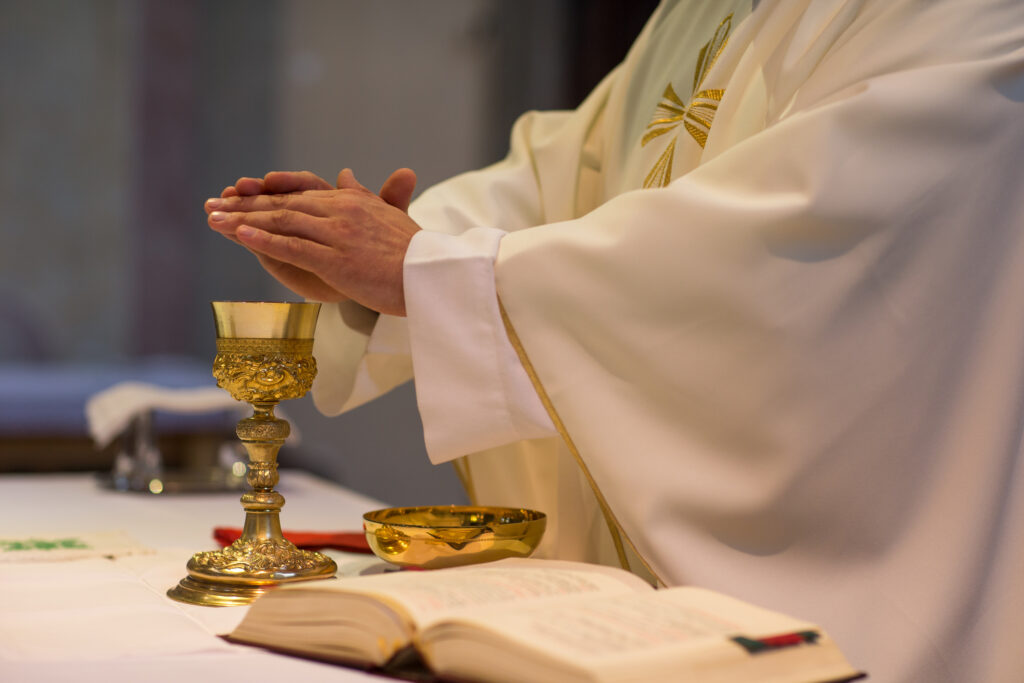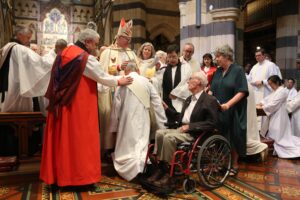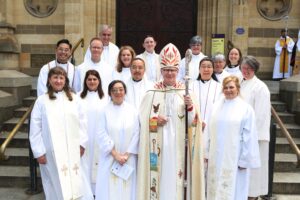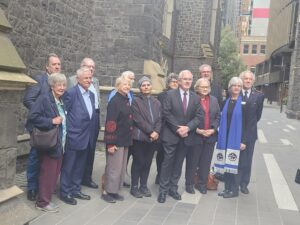
Jenan Taylor
2 August 2024
A religious sector trade union has warned the Melbourne Anglican diocese it might be liable for workers’ compensation claims under draft Victorian laws.
Its executive officer believes expecting clergy to work six days a week is driving a shortage of faith workers in Australia.
The Faith Workers Alliance urged the diocese to end the expectation of a six-day working week for clergy and take steps to normalise a five-day working week, in a submission on clergy working conditions.
Read more: ‘Review case for five-day week for clergy’ – Synod motion
FWA executive officer the Reverend Chris Bedding said a consistent pattern of working six full days would likely be indefensible under anticipated new Victorian regulations about psychological safety.
He said working more than five days a week could lead to workplace hazards including bullying, which could cause psychological harms including depression, and sleep disorders.
Victoria’s proposed regulations objectives include promoting the importance of psychological health and safety in the workplace.
Employers will be obligated to identify psychosocial hazards, such as violence and poor support, eliminate the associated risks, and put in place prevention plans.
Mr Bedding said overwork was a problem for most parish clergy because they were deeply committed to their calling, yet there was no facility to set boundaries around the amount of their labour.
He said clergy across Australia reported being exhausted and feeling unsafe in their workplace because the load and expectations were unsustainable.
Mr Bedding said this was causing a recruitment and deployment crisis for faith workers in Australia.
Read more: Healthier clergy, families, churches because of five-day working week: Leaders
He said enforcement of the proposed laws could arise when there was a workers’ compensation or unfair dismissal claim, or even if someone was investigated for their ministry practice.
“They could claim they’d been working six days a week for years and consequently have a psychological injury. Working such unreasonable hours could potentially be their argument,” Mr Bedding said.
He said two days rest and recreation per week was a reasonable provision for modern clergy given they were expected to complete tasks, achieve goals and be assessed on performance and work standards.
The Reverend Andrew Bowles said a five-day working week reflected a more contemporary view of ministry.
Mr Bowles proposed a review of clergy working hours at the 2023 Melbourne Synod.
He said a six-day working week as an employment condition assumed facts about the life of the worker, including their family situation, and ability to give time to the life of the church.
“It may have a certain historical assumption about the kind of person who is a vicar,” Mr Bowles said.
“Many people now have lives structured differently to what they were in previous generations and have different calls on their time, rhythms of life and schedules to take into account.”
He was interested in how the diocese would fulfil its obligation to provide a healthy and safe working environment under the planned laws, and believed it needed to investigate whether clergy working conditions were safe or not.
For more faith news, follow The Melbourne Anglican on Facebook, Instagram, or subscribe to our weekly emails.







